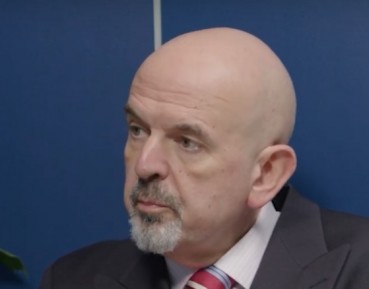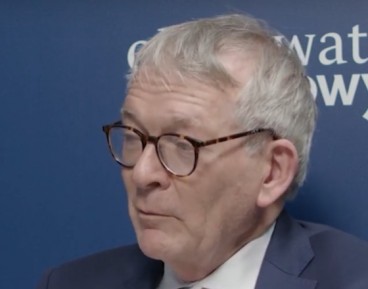The international economic sanctions on the agressor in the war in Ukraine are a game changer
Category: Analizy
Obserwator Finansowy: Thank you very much for being here. It’s a great honour for us to have an opportunity to talk to you today. I would like to ask you a question concerning your paper. During the academic session today you stated that it is very difficult to evaluate the success or failure of the sanctions imposed on Russia during the war. How is that so?
Fabio Ghironi: So first of all, thank you, the honour is mine actually. It’s not necessarily that it is very difficult to evaluate success or failure, it is that the metric should not be the exchange rate, meaning that whether the exchange rate appreciates or depreciates as a consequence of sanctions has to do with the nature of the sanctions and the type of reallocation effects that they generate within and across economies. But it can still be the case that both an upward or a downward movement of the exchange rate are consistent with, say, reduced welfare in the targeted country. And that ultimately should be, in the context of the type of model that I presented, the metric to evaluate success or failure of sanctions, rather than the direction of movement of the exchange rate. Much has been made of the movements of the exchange rate of the rouble after the introduction of the sanctions and trying to infer success or failure from that. I do not think it is the right approach. In the context of the type of framework that I presented, you would want to use welfare in the targeted country and perhaps welfare in the sanctioning countries, because if imposing sanctions is more costly in terms of welfare in the sanctioning countries than in the sanctioned one, then it’s very legitimate to wonder about how successful the sanctions are.
From your perspective, do you think that the sanctions imposed on Russia work?
Yes, I do. I think that ultimately the sanctions have been and are successful and it is important to impose them for reasons that also go beyond the type of framework that I presented. I think there is an obligation to do everything possible to create damage to Russia’s war effort and put pressure, hopefully, for change in Russia. This goes beyond the framework that I presented. For instance, within the framework that I presented I was saying that it is legitimate to wonder about the success or failure of sanctions if they are more costly in terms of welfare in the country that imposes the sanctions versus the impact on welfare in the targeted country. Now does this mean that these sanctions should not be used? I don’t think so, because I think there are reasons to impose these sanctions that go far beyond what is captured in the model that I presented.
Can we say that those sanctions go far beyond just economic reasons? They have a political, moral and social impact as well, right?
Absolutely, and ultimately these reasons are crucial.


